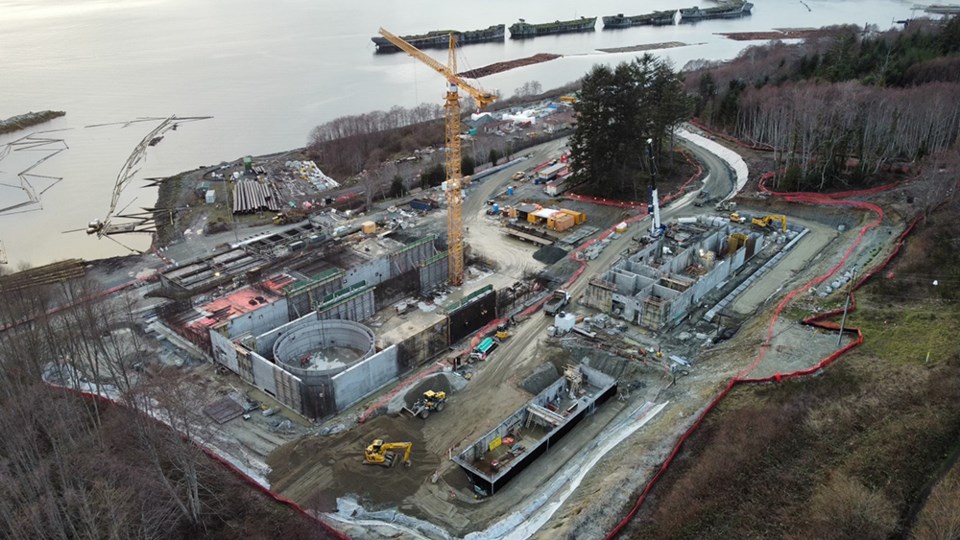Seven months ago, our southwest coast experienced a heat dome, during which billions of sea creatures ranging from plankton to shellfish to grasses to fish died.
The heat dome initiated a months-long summer drought. Rivers and streams heated up, dropped or dried up. Summer forest fires leapt roads and rivers throughout southwest BC. Fast forward four months and southwest BC experienced three atmospheric river systems during which the same streams and rivers flooded.
All of these extreme weather events will have contributed to collapsing salmon stocks, which are supposed to thrive and survive once they arrive into the Salish Sea. However, the Salish Sea is warming, overfished and full of thousands of contaminants of emerging concern (CEC).
CEC research, according to a 2018 report published by Environment Canada and the Canadian Water Network, reveals that all sea life, including salmon and orca tissue, is riddled with CECs.
What are CECs? Anything that enters our mouths or drains: viruses, paint thinner, fentanyl, Viagra, caffeine, bacteria, chemotherapy...you name it. It goes in. It goes out, straight back to a marine-receiving environment, unless the sewage plant employs tertiary wastewater treatment. Then, a majority of CECs are effectively filtered.
With the conclusion of COP26 and new federal environment minister Steven Guilbeault, there is a renewed will to prevent further climate change such as oceanic warming, acidification and eutrophication, and to protect key species such as salmon and their apex predators grizzlies and humans. High mortality and low reproduction rates of orcas are tied to their consumption of a CEC-riddled salmon diet.
CECs play havoc with all species’ fright/flight instincts and reproductive ability. Their neurological and endocrine systems become dysfunctional. Research shows that CEC toxicity naturally affects human neurological, endocrine and immune health as well.
We should become part of the solution as we have growing evidence, which is why other cities have built, are building or have published plans to begin building tertiary treatment wastewater treatment plants.
We won’t be “Coastal by Nature” if we don’t follow the best practices of tertiary treatment that most of our neighbouring Salish Sea cities are now adopting. More pressure needs to be put on Powell River City Hall to aggressively seek grant funding and the lobbying of federal and provincial ministers of health and environment.
There is so much at stake if we don’t immediately protect our lovely Malaspina Strait, which supports hundreds of migratory marine and bird life. As experienced during last summer and fall’s extreme weather systems, global warming is hitting hard and fast, and we don’t have forever to protect vulnerable species, as we are now one of them.
Lesley Armstrong is a City of Powell River resident.



